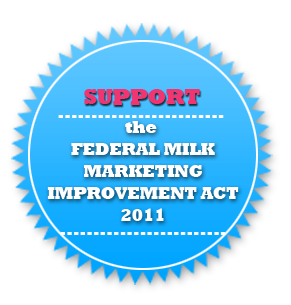A Serious Post / What to Look For
 Heather Carlucci | Posted on
Heather Carlucci | Posted on  6:00PM
6:00PM The other day I received an e-mail. I don't know where it came from or what they were telling me I was supporting but it was from General Mills. They went on to tell me how great ready-to-eat cereals were for us. Our children too.
Here's what they said:
Thank you for your email regarding the Children’s Food and Beverage Advertising Initiative (CFBAI), and for your positive comments about our products.
Your email also encourages support for the very different approach suggested by the Interagency Working Group (IWG). Please allow me to respond, as we do have serious concerns with the IWG proposal.
Our most advertised product is cereal – and we stand behind it. Cereal is one of the healthiest breakfast choices you can make. Ready-to-eat cereal has fewer calories than almost any other common breakfast option. Cereal eaters also consume less fat, less cholesterol and more fiber than non-cereal eaters.
Childhood obesity is a serious issue – and General Mills wants to be part of the solution. But if the issue is obesity, cereal should perhaps be advertised more, not less. Because frequent cereal eaters tend to have healthier body weights – including people who choose sweetened cereals. It’s true of men. It’s true of women. It’s true of kids.
Data published in the Journal of the American Dietetic Association, based on the U.S. Dept. of Health and Human Services’ National Health and Nutrition Examination Survey (NHANES), found that frequent cereal eaters tend to have healthier body weights overall, and that includes kids who eat sweetened cereals. To be precise, kids who eat four to seven servings of cereal over a 14-day period are less likely to be overweight than kids who eat fewer than four servings of cereal. Kids who eat cereal more frequently, or more than seven times in 14 days, are even less likely to be overweight.
A separate study published in the Journal of the American Dietetic Association followed 2,000 American girls over a 10-year period. It also found that girls who demonstrated a consistent cereal-eating pattern had healthier body weights and lower body mass index (BMI) than those who did not.
Really? Who believes this? This is the reason I ending up knee-deep in finding out where our food comes from. Sadly, as I go, it gets more alarming. How can our bodies keep up with nature if what we put in it strays so far from the way we're supposed to feed them? We are the richest and sickest nation in the world.
If you've been reading this blog for a while, you know I've brought up the issue of "Round Up Ready" flour. Many grains and plants fall under "round-up ready" and it's almost all the flour and grains that we eat when we don't know directly where they come from.
Round Up is an herbicide that Monsanto created in the 1970's. It kills everything but the seed. It leaves a powerful residue on the seed and therefore, the plant.
For more a more technical explanation:
*Glyphosate (roundup) chelates (immobilizes) a tremendous number of soil minerals, reducing plant uptakes of some micronutrients by as much as 80%. Calcium, cobalt, copper, iron, manganese, magnesium, nickel, zinc — all are bound up by glyphosate. While it is rapidly immobilized in the soil because it binds with those nutrients, glyphosate can remain in plants and soils for a very long time — up to 22 years in clay soils.
Alarming, no?
And it gets better. Round up has been proven to cause miscarriages in every labratory animal it's been tested on.
I can't stress enough the need to find out where our food comes from. We as a country do everything we can to grow more, make more food as cheaply as possible. Yet we have starving children in every major city as well as an enormous amount of wasted food daily.
By supporting farmers, you support yourself. It is preventative medicine. The amount of money going into the healthcare field as well as Big Pharm is directly related to how we allow our food to be handled.
Doing something about this is easy. I don't expect you to run through the street screaming like I do. It's a bad idea on a rainy day and my family is finding it embarrassing.
But you can take good baby steps and think twice. Buy one small thing at a farmer's market, take note of the food you eat and how you feel afterwards.
Or just spend your life savings on buying a farm and go for broke.
Note my attempt at humor.
For more information on the health risks of GMOs (genetically modified organisms)
go to: http://www.responsibletechnology.org/gmo-dangers/65-health-risks/1notes
Footnotes: *http://healthimpactnews.com/2011/the-dangers-of-roundup-ready-food/



Reader Comments